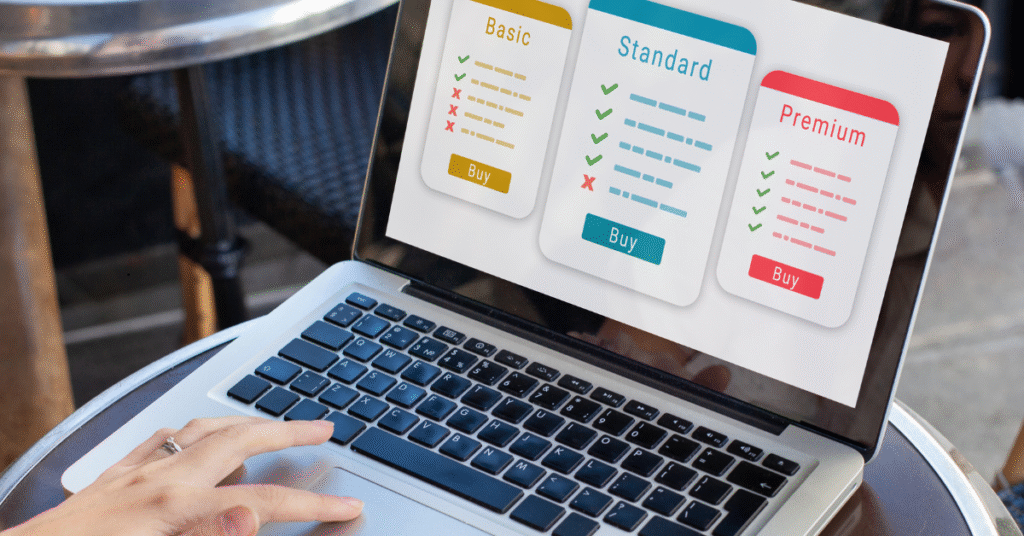14 Smart Ways To Simplify Your Finances

Your financial life probably feels like a tangled mess of passwords, payment dates, and too many apps promising to “change your life.” You’ve got three savings accounts you forgot existed, subscriptions bleeding you dry, and a credit card situation that would make a spreadsheet cry.
Sound familiar? Yeah, I thought so.
Here’s the thing, though. Managing money doesn’t need to feel like solving a Rubik’s cube blindfolded. The secret isn’t working harder or downloading another budgeting app (please, no more apps). It’s about stripping away the nonsense and keeping only what actually moves the needle.
I’ve spent years studying personal finance, earned my degrees in the field, and still caught myself drowning in financial clutter more times than I’d like to admit. But once I figured out how to simplify things? Game changer. Suddenly, I had clarity, control, and way less stress about money.
This guide is going to walk you through 14 practical, no-BS ways to simplify your finances. No fluff, no complicated jargon. Just real strategies that work in the real world.
Why Bother Simplifying Your Finances Anyway?
Before we jump into the how, let’s talk about the why. Because if you don’t understand the point, you’re not going to stick with it.
Complexity kills progress. Period.
When your financial life is a chaotic jumble of accounts, bills, and half-forgotten goals, you can’t see the forest for the trees. You’re constantly reacting instead of planning. Stressing instead of growing. And let me tell you, that’s exhausting.
Simplifying your finances gives you three massive benefits:
- Mental clarity: You know exactly where your money is, where it’s going, and why.
- Better decisions: When things are clear, you make smarter choices faster.
- Real progress: You stop spinning your wheels and actually move forward toward your goals.
Think of it like cleaning out your closet. Yeah, it’s work upfront, but once it’s done? You can actually find what you need, and getting dressed in the morning stops feeling like a battle.
Your finances work the same way. Less clutter equals more control. And control? That’s where freedom lives.
14 Ways To Simplify Your Finances
Alright, enough theory. Let’s get into the actual strategies that’ll transform your financial life from chaotic to calm.
1. Close Or Consolidate Your Accounts
How many bank accounts do you have right now? Be honest. If you had to think about it for more than three seconds, that’s already a problem.
Multiple checking accounts, savings accounts scattered across different banks, old credit cards you opened for a signup bonus five years ago. All of this creates unnecessary complexity and increases your chances of missing payments or racking up fees.
Here’s what you should do: Pick one solid checking account and one or two savings accounts (maybe one for emergencies, one for goals). That’s it. Close the rest or consolidate them.
Same goes for credit cards. If you’ve got cards sitting in a drawer collecting dust, either close them or at least stop pretending you’re going to use them. And if you’ve got investments spread across four different platforms because you kept trying new apps? Consolidate into one reliable brokerage.
Fewer accounts mean fewer logins to remember, fewer statements to track, and way less mental energy wasted. Trust me, your future self will thank you.
2. Get Rid Of Debt ASAP

Let’s talk about the elephant in the room: debt.
Every single debt you carry adds complexity to your life. Another payment to remember. Another interest rate eating away at your money. Another source of stress keeping you up at night.
If you want to truly simplify your finances, attacking debt needs to be priority number one. I’m talking high-interest credit cards, personal loans, car payments, all of it.
You’ve got two solid strategies here: the debt snowball method (pay off smallest balances first for quick wins) or the debt avalanche method (tackle highest interest rates first to save money). Pick whichever one keeps you motivated, then go hard.
The math matters, sure. But what matters more is actually doing it. So choose the approach that feels right for you and stick with it.
Once that debt is gone? You’ll have fewer bills, more breathing room, and a whole lot more money to put toward things that actually matter. Debt-free living isn’t just financially smart. It’s beautifully simple.
3. Focus On Fewer Goals

Ever tried to juggle five balls at once? Yeah, it doesn’t go well.
Yet somehow, we think we can chase ten financial goals simultaneously and wonder why we’re not making progress. Save for a house, build an emergency fund, max out retirement, pay off debt, save for vacation, start investing… it’s too much.
Here’s a better approach: Pick one or two goals max and pour your energy into those until you hit them. Then move to the next ones.
When your focus is narrow, your money has direction. Every dollar knows its job. You’re not spreading yourself thin trying to make tiny progress everywhere. You’re making real, measurable progress where it counts.
Once you knock out goal number one, celebrate it, then shift your focus. This sequential approach might feel slower, but it’s actually way faster because you’re not diluting your efforts.
Simplicity wins. Always.
4. Automate Your Finances
If you’re still manually paying bills and transferring money every month, we need to talk.
Automation is hands-down one of the smartest ways to simplify your finances. It removes the mental load, eliminates the risk of forgetting, and builds consistency without you lifting a finger.
Set up automatic transfers to your savings account on payday. Schedule bill payments so they’re always on time. Automate debt payments so you’re chipping away at balances in the background. Even automate investments if you’re building wealth for the future.
The beauty of automation is that it makes good financial behavior the default. You’re not relying on willpower or memory. The system just works, whether you’re thinking about it or not.
Just make sure you’ve got enough buffer in your checking account to cover everything, and review your automated payments every few months to make sure they still make sense. But once it’s set up? You’re golden.
5. Simplify Your Budget Categories

Budgeting doesn’t mean tracking every single penny in 47 different categories. That’s not a budget. That’s a part-time job.
If your budget has separate lines for coffee, snacks, ride-shares, and streaming services, you’re overcomplicating things. And when budgets get complicated, people quit.
Try this instead: Use broad categories that actually matter. Something like:
- Needs (rent, utilities, groceries, insurance)
- Wants (entertainment, dining out, hobbies)
- Savings (emergency fund, goals)
- Debt payments
Or even simpler: the 50/30/20 rule. Fifty percent needs, 30% wants, 20% savings and debt. Done.
The point isn’t to lose control. It’s to make budgeting sustainable. When your budget is easy to follow, you’ll actually follow it. And that’s when real progress happens.
6. Pay All Bills At Once
Trying to remember which bills are due on what day is a recipe for missed payments and late fees. It’s stressful, it’s messy, and it’s totally unnecessary.
Here’s a better system: Pick one or two days each month and pay everything at once. Rent, utilities, credit cards, insurance. Everything that isn’t automated gets handled in one sitting.
If your due dates don’t line up nicely, call the companies and ask them to adjust your billing cycle. Most will do it without any fuss.
This approach gives you total clarity. You always know what’s due and when. No more scrambling at the last minute or wondering if you forgot something. Just one focused session, and you’re done for the month.
Simple. Effective. Stress-free.
7. Use A Simple Credit Card Strategy

Credit cards can either be your best financial tool or your worst nightmare. The difference comes down to how you use them.
If you’re juggling five cards with different rewards programs, payment dates, and balances, you’re making life harder than it needs to be. Let’s simplify.
Here’s the strategy: Stick to one or two credit cards max. Use them for specific categories (like groceries and gas), and pay them off in full every single month. That’s it.
You still get the perks like cashback or points, but without the chaos. And if credit card debt has been a problem for you in the past, don’t be afraid to scale back even further. Cash-only for a while isn’t a punishment. It’s a reset.
The goal is control, not complexity. Keep it simple, and your credit cards will work for you instead of against you.
8. Move Your Emergency Fund To A High-Yield Savings Account

If your emergency fund is sitting in a regular checking account earning basically zero interest, you’re leaving money on the table.
A High-Yield Savings Account (HYSA) is one of the easiest upgrades you can make. It keeps your money accessible and safe, but actually pays you decent interest. We’re talking 4% to 5% APY in many cases, compared to the 0.01% you’re probably getting now.
Opening a HYSA takes like 10 minutes. You link it to your checking account, transfer your emergency fund over, and boom. Done. Your money is now working for you in the background without any extra effort on your part.
It’s a set-it-and-forget-it move that boosts your financial security without adding complexity. That’s exactly what simplifying your finances is all about.
9. Simplify Your Investments

Investing doesn’t have to be complicated, but a lot of people treat it like it is. Multiple brokerage accounts, dozens of individual stocks, constant buying and selling. That’s not investing. That’s stress.
The truth is, the most effective investment strategies are often the simplest. Index funds, ETFs, and a buy-and-hold approach have consistently outperformed active trading for the average investor.
Start by consolidating your investment accounts. Pick one solid platform (like Vanguard, Fidelity, or Schwab) and move everything there. Then, choose a handful of low-cost, diversified index funds that match your risk tolerance and timeline.
If even that feels like too much, consider a target-date fund or robo-advisor. These options automatically adjust your portfolio as you get closer to retirement, taking all the guesswork out of the equation.
Simplicity in investing isn’t about sacrificing returns. It’s about removing the noise so you can focus on long-term growth without the constant worry.
10. Eliminate Paperwork Where Possible
Paper clutter is real, and it’s suffocating. Bills, receipts, insurance documents, tax forms. Before you know it, you’ve got stacks of paper everywhere and no idea where anything is when you actually need it.
Go digital. Seriously.
Sign up for e-statements from your bank and credit cards. Go paperless on utility bills. Scan important documents and store them in a secure cloud service like Google Drive or Dropbox. Organize everything into folders by category (taxes, insurance, home, etc.) so you can find things in seconds.
Worried about security? Use two-factor authentication and a strong password manager. Your digital files will actually be safer than a filing cabinet that anyone can access.
Going paperless doesn’t just declutter your space. It declutters your mind. And it saves you hours of frustration when tax season rolls around or you need to find that one document from three years ago.
11. Perform A Subscription Audit

Subscriptions are financial vampires. They quietly drain your bank account month after month, and you barely notice because each one seems so small.
But add them up? Streaming services, software tools, meal kits, gym memberships, apps you forgot you had. You’re probably spending hundreds of dollars every month on stuff you barely use.
Do a subscription audit right now. Go through your bank and credit card statements from the last three months and list every recurring charge. Then ask yourself:
- Do I actually use this?
- Does it add real value to my life?
- Is there a free or cheaper alternative?
Cancel anything that doesn’t pass the test. You’re not depriving yourself. You’re taking control and making room for what actually matters.
Do this audit every few months. Subscriptions have a sneaky way of creeping back in, so regular check-ins keep them in check.
12. Rent Instead Of Own
Okay, this one might ruffle some feathers, but hear me out.
Ownership isn’t always the smart financial move, especially if simplicity is your goal. When you own something (a house, a car, equipment), you also own all the headaches that come with it. Maintenance, repairs, insurance, taxes, the list goes on.
Renting, on the other hand, keeps your life lean and flexible. You’re not tied down. You’re not responsible for every little thing that breaks. And in many cases, renting is actually cheaper when you factor in all the hidden costs of ownership.
This doesn’t mean you should rent forever. But if you’re in a phase of life where mobility, low overhead, and less stress are priorities, renting might be the smarter choice.
Don’t let societal pressure push you into ownership before you’re ready. Simplicity sometimes means going against the grain.
13. Pay For Things Annually, Not Monthly
Monthly payments feel convenient, but they clutter your financial calendar. Dozens of small charges hitting your account throughout the month makes it harder to track spending and easier to lose control.
Whenever possible, pay annually instead. Insurance, software subscriptions, memberships. Many services offer discounts for annual payments, so you save money and reduce transaction volume at the same time.
Paying annually also simplifies your monthly cash flow. There’s one less bill to think about, one less payment to track, one less thing demanding your attention.
Obviously, this only works if you’ve got the cash flow to handle it. But if you do, it’s a smart way to streamline your finances and save a few bucks in the process.
14. Live A Simpler Lifestyle
At the end of the day, the most effective way to simplify your finances is to simplify your life.
I’m not talking about living like a monk or depriving yourself of everything fun. I’m talking about being intentional. Choosing quality over quantity. Understanding the difference between what you need and what you want. Getting comfortable with enough.
When you embrace a simpler lifestyle, your finances naturally follow. There’s less pressure to earn more just to keep up with everyone else. Less temptation to spend out of boredom or insecurity. And more freedom to focus on what truly matters.
A simpler life means fewer possessions to maintain, fewer commitments to juggle, and fewer distractions pulling you away from your goals. It’s about creating space for peace, clarity, and real progress.
Your financial life is a reflection of your lifestyle. Simplify one, and the other gets easier too.
Final Thoughts
Look, you don’t need a finance degree to take control of your money. You just need a system that works and the discipline to stick with it.
These 14 strategies aren’t complicated. They’re practical, straightforward, and proven. Close unnecessary accounts. Crush your debt. Focus on fewer goals. Automate what you can. Simplify your budget. Pay bills strategically. Use credit cards wisely. Move your savings to a HYSA. Streamline your investments. Go paperless. Audit subscriptions. Consider renting. Pay annually. Live simply.
Every single one of these moves reduces complexity and increases control. And when you have control, you have freedom.
The goal isn’t perfection. It’s progress. Start with one or two strategies that resonate most with you, implement them, then move on to the next. Little by little, your financial life will go from overwhelming to manageable to actually enjoyable.
Money isn’t supposed to be a source of constant stress. It’s supposed to be a tool that helps you build the life you want. And the simpler you make it, the better that tool works.
So stop overcomplicating things. Strip away the nonsense. Keep what matters, ditch what doesn’t, and watch how quickly your financial life transforms.
You’ve got this. 🙂








